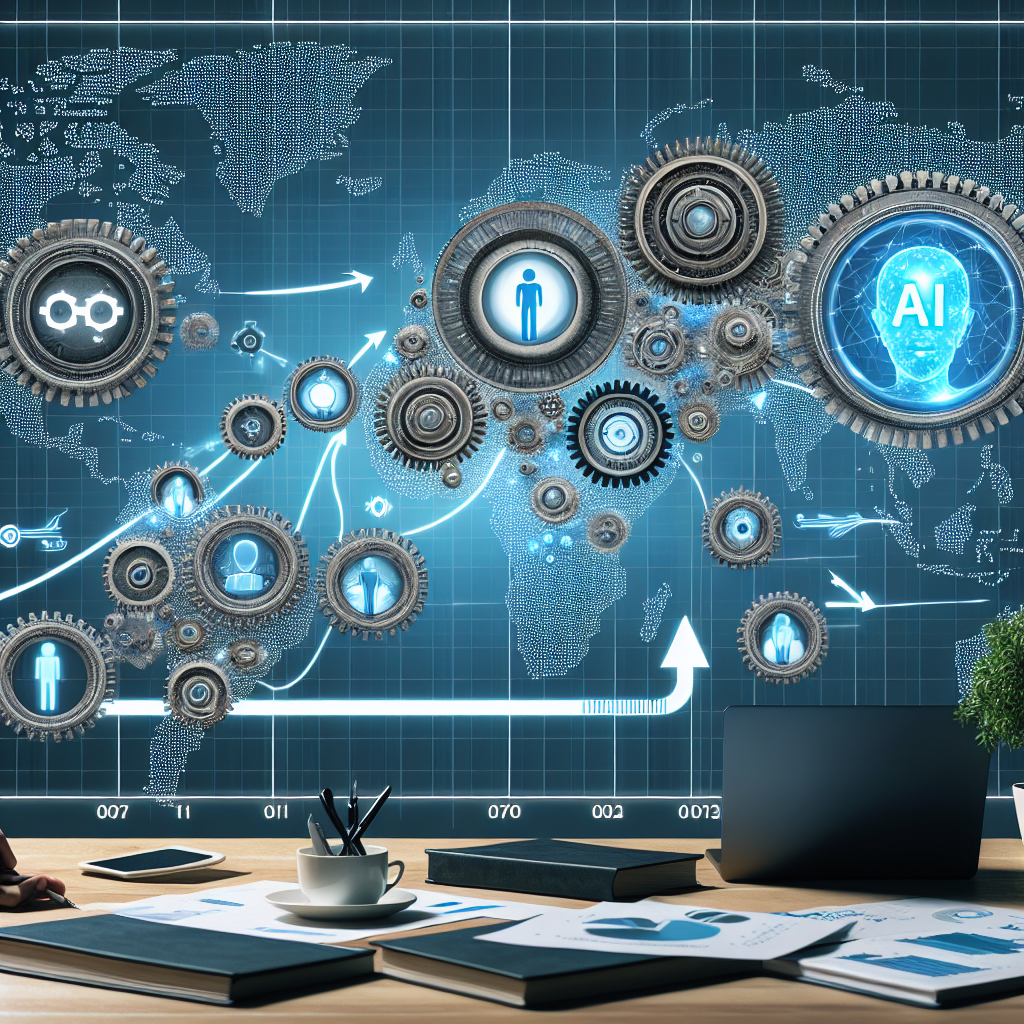The Evolution of AI Outsourcing Models
Artificial Intelligence (AI) has become an integral part of many industries, from healthcare to finance to retail. As the demand for AI solutions continues to grow, businesses are increasingly turning to outsourcing to access the expertise they need. AI outsourcing models have evolved over the years, from simple project-based contracts to more strategic partnerships. In this article, we will explore the evolution of AI outsourcing models and how businesses can leverage them to drive innovation and growth.
Traditional Outsourcing Models
In the early days of AI outsourcing, companies would typically engage in project-based contracts with third-party vendors. These contracts would involve the development of specific AI solutions, such as chatbots or recommendation engines, for a fixed fee. While this model was effective for short-term projects, it often lacked the flexibility and agility that businesses needed to keep up with the rapidly evolving AI landscape.
As AI technology advanced, businesses began to realize the limitations of traditional outsourcing models. They needed partners who could not only develop AI solutions but also provide strategic guidance and support throughout the entire process. This led to the emergence of more collaborative outsourcing models, such as managed services and dedicated teams.
Managed Services
Managed services involve outsourcing the management and maintenance of AI solutions to a third-party vendor. This model is ideal for businesses that want to offload the day-to-day operations of their AI systems while retaining control over strategic decision-making. Managed services providers typically offer a range of services, including monitoring, troubleshooting, and optimization, to ensure that AI solutions are performing at their best.
One of the key benefits of managed services is that they allow businesses to focus on their core competencies while leaving the technical details to experts. This can help organizations save time and resources, as well as accelerate the deployment of AI solutions. Managed services providers also have access to the latest tools and technologies, giving businesses a competitive edge in the market.
Dedicated Teams
Dedicated teams outsourcing model involves hiring a team of AI experts from a third-party vendor to work exclusively on a company’s projects. This model is ideal for businesses that want to build long-term relationships with their outsourcing partners and have a high degree of control over the development process. Dedicated teams can be located onshore or offshore, depending on the specific needs of the business.
One of the main advantages of dedicated teams is that they provide businesses with access to a pool of talent that they may not have in-house. This can help organizations overcome skill shortages and accelerate the development of AI solutions. Dedicated teams also offer flexibility in terms of scaling up or down based on project requirements, making them a cost-effective option for businesses of all sizes.
Strategic Partnerships
In recent years, strategic partnerships have emerged as the preferred outsourcing model for many businesses looking to leverage AI technology. Strategic partnerships involve a deep collaboration between a company and its outsourcing partner, with a focus on driving innovation and growth. This model goes beyond traditional outsourcing relationships by aligning business goals, sharing risks and rewards, and fostering mutual trust and transparency.
Strategic partnerships are characterized by a high level of collaboration and communication between the two parties. This allows businesses to access the expertise and resources they need to develop cutting-edge AI solutions that align with their strategic objectives. Strategic partners can also provide valuable insights and guidance on industry trends and best practices, helping businesses stay ahead of the competition.
FAQs
Q: What are the benefits of outsourcing AI development?
A: Outsourcing AI development can help businesses access specialized expertise, reduce costs, accelerate time to market, and improve scalability and flexibility.
Q: How do I choose the right outsourcing partner for my AI project?
A: When selecting an outsourcing partner for your AI project, consider factors such as expertise, experience, track record, communication skills, cultural fit, and pricing.
Q: What are the key differences between managed services and dedicated teams outsourcing models?
A: Managed services involve outsourcing the management and maintenance of AI solutions, while dedicated teams involve hiring a team of AI experts to work exclusively on a company’s projects.
Q: How can I ensure a successful outsourcing partnership for my AI project?
A: To ensure a successful outsourcing partnership for your AI project, establish clear goals and expectations, communicate effectively, provide feedback, and maintain a collaborative and transparent relationship with your outsourcing partner.
In conclusion, the evolution of AI outsourcing models has transformed the way businesses access and leverage AI technology. From traditional project-based contracts to strategic partnerships, businesses now have a range of options to choose from based on their specific needs and objectives. By understanding the different outsourcing models available and selecting the right partner, businesses can drive innovation, accelerate growth, and stay competitive in today’s rapidly changing business landscape.

